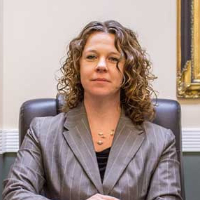 Wilmington Felony Lawyers, Ohio
Wilmington Felony Lawyers, Ohio
Sponsored Lawyers
1-6 of 6 matches
Criminal, DUI-DWI, Misdemeanor, Felony
Stephenie Lape is the quintessential attorney. She is intelligent, extremely hardworking, and brutally honest. Stephenie comes from a long line of attorneys and has an unmatched pedigree. Honesty, hard work, and integrity are a few of the traits instilled in Stephenie by her family.
(more)Criminal, Felony, Misdemeanor, DUI-DWI, White Collar Crime
Cincinnati native Bradley J. Groene is a compassionate and industrious legal advocate who has been practicing law in the greater Cincinnati metropolitan area for five years. Brad’s sole practice areas comprise criminal defense, OVI / DUI, and traffic offenses. He has successfully represented clients charged with a wide range of offenses ranging from minor misdemeanors to the most serious felony cases. Brad received his bachelor of science in Business from Miami University in 2005 and his juris doctor from the Salmon P. Chase College of Law at Northern Kentucky University in 2008. Brad is a selfless and compassionate Cincinnati defense attorney who practices law because he truly believes in making a difference in the lives of his clients. He passionately believes in the importance of providing stellar, highly effective legal representation for all of his clients so that the charges and penalties they face will not have dire, life changing consequences on their jobs, families, and futures. He is committed to fighting vigorously and tirelessly for every aspect of a client’s case in order to provide each client the justice that they deserve. For Brad, clients come first. It is of paramount importance that each client has a personalized experience rather than feel like a number. He gives his personal cell phone number to clients and makes himself available on a 24/7 basis so that they are able to reach him whenever they need. He understands the urgency of answering questions quickly and promptly, as it is understandable a client’s liberties and privileges are at stake. Brad’s interest in becoming an attorney was initially piqued in college when he took a business law class. This class opened his eyes to the law, as he enjoyed learning about the finer details as well as bigger picture of the legal profession. Little did he know that his interest in business law would develop into a criminal law career. After college Brad attended law school, where he continued to broaden his legal, intellectual, as well as practical skills. It was during law school where his experience in the criminal system began, while interning full time at the Hamilton County Public Defender’s office. He learned the complexities of the criminal justice system and handled actual cases in Hamilton County. Following law school, Brad continued to gain more experience in the criminal arena. He has successfully defended clients facing all kinds of criminal charges from drug offenses to OVIs to domestic violence. Specifically, he has won numerous bench trials in front of judges, argued cases in front of all of the local prosecutors, and has truly gained an understanding for effectively handling a criminal defense case. Brad is a member of the Ohio State Bar Association and is licensed to practice law in Ohio as well as Kentucky. He is certified and trained by the National Highway Traffic and Safety Administration to perform field sobriety tests that law enforcement typically conduct. He also participates in speaking engagements at the Wellness Certified Driver Intervention Program to discuss OVI and DUI law. In his spare time, Brad enjoys spending time with his wife and newborn daughter, watching and attending Cincinnati Reds and Bengals games, playing softball, golfing, spending time with friends, and playing board games with his family.
(more)DUI-DWI, Criminal, Divorce & Family Law, Felony, Accident & Injury
Matthew Ernst, Attorney at Law offers the services of a tough, smart attorney who gets results for his criminal defense clients through forceful advocacy. He graduated from the University of Toledo College of Law and began practicing in 1996. He is admitted to practice before Ohio state and federal courts including the US District Court for the Southern District of Ohio. To be able to provide personal service to each client and to focus his efforts on criminal defense, he heads his own firm conveniently located in downtown Cincinnati, Ohio.
(more)






